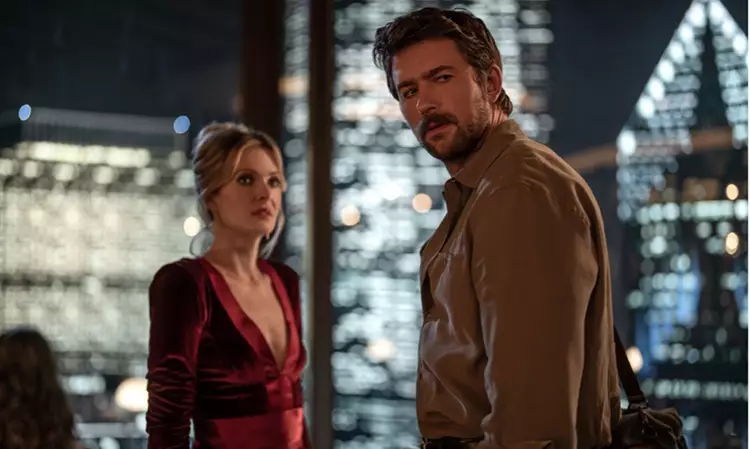In the landscape of contemporary thrillers, “Drop” emerges as an intriguing blend of suspense and psychological horror, directed by Christopher Landon, known for his deft hand at crafting engaging narratives within the genre. Produced by renowned partners Blumhouse and Platinum Dunes, the film not only captures the attention of horror aficionados but also assures an elevated cinematic experience through its intellectual storytelling and psychological intricacies. The collaboration between these powerhouses promises a film that is rich in narrative depth, evoking both tension and empathy from audiences.
At the heart of “Drop” lies Violet, a widowed mother navigating the tumultuous waters of post-loss dating. The premise introduces her on what should be a hopeful first date, laden with possibilities and new beginnings. However, the film swiftly juxtaposes this initial spark with a disdainful turn of events as she starts receiving menacing messages that threaten the safety of her loved ones. This duality of Violet’s experience—from the thrill of romance to the terror of existential threats—creates a dynamic character arc that resonates with viewers, encapsulating the harrowing reality many individuals face when love is juxtaposed with danger.
The Psychological Horror Element
As Violet attempts to balance her new romantic interest, Henry, with the ominous instructions from an anonymous assailant, the narrative skillfully weaves in elements of psychological horror. The omnipresence of the hooded figure through security camera feeds accentuates the invasive nature of the threats, making the viewer acutely aware of the fragility of safety in what is supposedly a secure environment. The film elicits a visceral response, encouraging audiences to grapple with themes of helplessness and maternal instinct, compelling Violet to make harrowing choices rooted in her desire to protect her son and sister.
Landon’s direction is complemented by the writing talents of Jillian Jacobs and Chris Roach, both of whom have experience in creating tension-filled narratives through previous Blumhouse projects like “Truth or Dare.” Their collaborative efforts in scripting “Drop” pave the way for a plot that is intricately plotted and rife with twists that challenge both the characters and the audience’s perceptions of morality. Each layer reveals more about Violet’s character and her circumstances, inviting viewers to engage in the unfolding mystery while questioning the motivations of each character involved.
The Universal Appeal of Thrillers
“Drop” signifies a contemporary representation of the modern thriller, tapping into the universal fears of motherhood, safety, and the unknown. As the stakes elevate and Violet’s interactions with Henry become fatalistic, the film prompts an exploration of trust—both in relationships and in the world around us. The narrative implores audiences to reflect on their own vulnerabilities while providing the thrills associated with a well-crafted mystery. Ultimately, “Drop” is not just a film about survival; it is a poignant exploration of love’s complexities when overshadowed by fear, leaving audiences pondering long after the credits roll.

